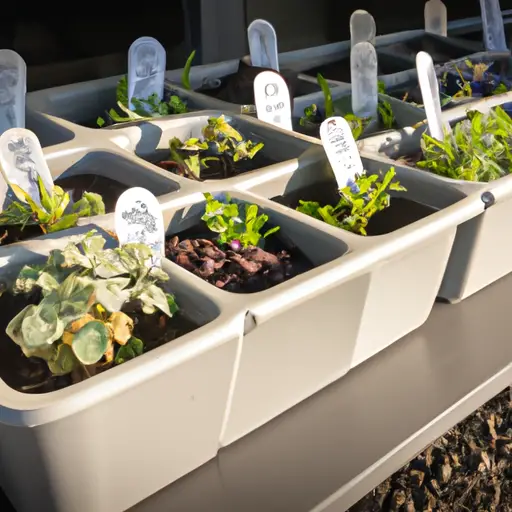Embrace Sustainability with Eco-Friendly Container Gardening Techniques
Container gardening is becoming increasingly popular as people are realizing the benefits of growing their own fruits, vegetables, and herbs. Not only can it provide you with fresh and nutritious produce, but it also allows you to embrace sustainability by adopting eco-friendly container gardening techniques. By implementing these techniques, you not only contribute to a greener planet but also create a beautiful and vibrant space within your home or outdoor area.
One of the key principles of eco-friendly container gardening is using sustainable materials. Instead of purchasing plastic containers that contribute to waste and pollution, opt for biodegradable options such as terracotta pots or planters made from recycled materials. These containers not only provide a more natural and aesthetically pleasing appearance but also benefit the environment by decomposing over time.
Another important aspect of sustainable container gardening is choosing organic soil and fertilizers. Chemical-based options can harm both your plants and the environment by degrading the quality of soil over time. Organic soil enriched with compost or vermicompost promotes healthy plant growth while ensuring that harmful chemicals do not infiltrate our water sources.
Water conservation is another crucial aspect to consider when practicing eco-friendly container gardening. One effective technique is implementing a drip irrigation system, which supplies water directly to the roots of plants, minimizing water wastage through evaporation or run-off. Additionally, collecting rainwater in barrels can serve as an alternative water source during dry periods, reducing reliance on tap water.
Integrating companion planting techniques is another way to enhance sustainability in container gardening. By carefully selecting compatible plant combinations, you can create a natural balance that reduces the need for chemical pesticides or synthetic fertilizers. For example, planting marigolds alongside your vegetables can help repel pests naturally.
To further promote sustainability in container gardening, consider incorporating natural pest control methods. Encourage beneficial insects like ladybugs and lacewings that prey upon harmful pests, or create homemade organic sprays using ingredients like neem oil or garlic to deter unwanted insects. These methods provide a safe and chemical-free way to protect your plants while maintaining a harmonious ecosystem.
Lastly, embrace recycling and upcycling in your container gardening practices. Instead of purchasing new containers, repurpose old items such as tin cans, wooden crates, or even broken pottery. Get creative with your choices and transform these items into unique and visually appealing planters.
In conclusion, eco-friendly container gardening techniques allow us to embrace sustainability while enjoying the benefits of growing our own produce. By using sustainable materials, organic soil and fertilizers, conserving water, implementing companion planting, natural pest control methods, and recycling/upcycling containers, we can create a greener and more environmentally friendly gardening experience. Let us all take steps towards a more sustainable future by incorporating these practices into our container gardens.














